Solar Panel All Risks Insurance
Carefree Investing in Solar Energy Projects!
Are you looking to protect your solar energy installation from extreme weather, fire, theft, or vandalism?
With our specialized Solar Panel All Risks Insurance, your PV installation is covered against unexpected damages and losses, including production loss.
Additionally, benefit from our unique Inherent Defect Coverage.
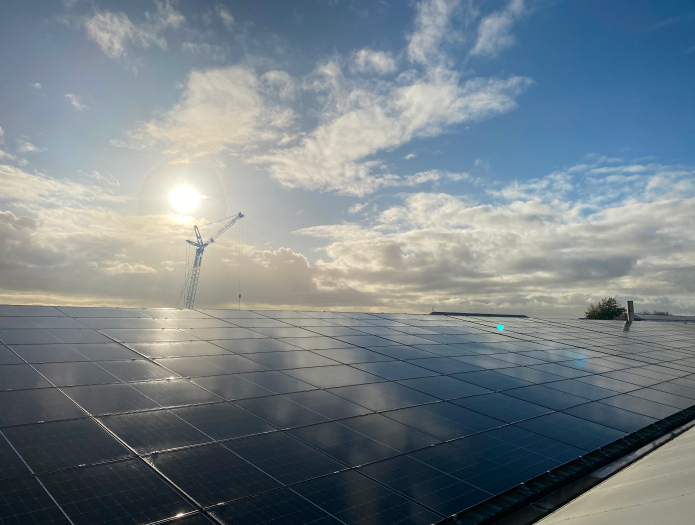
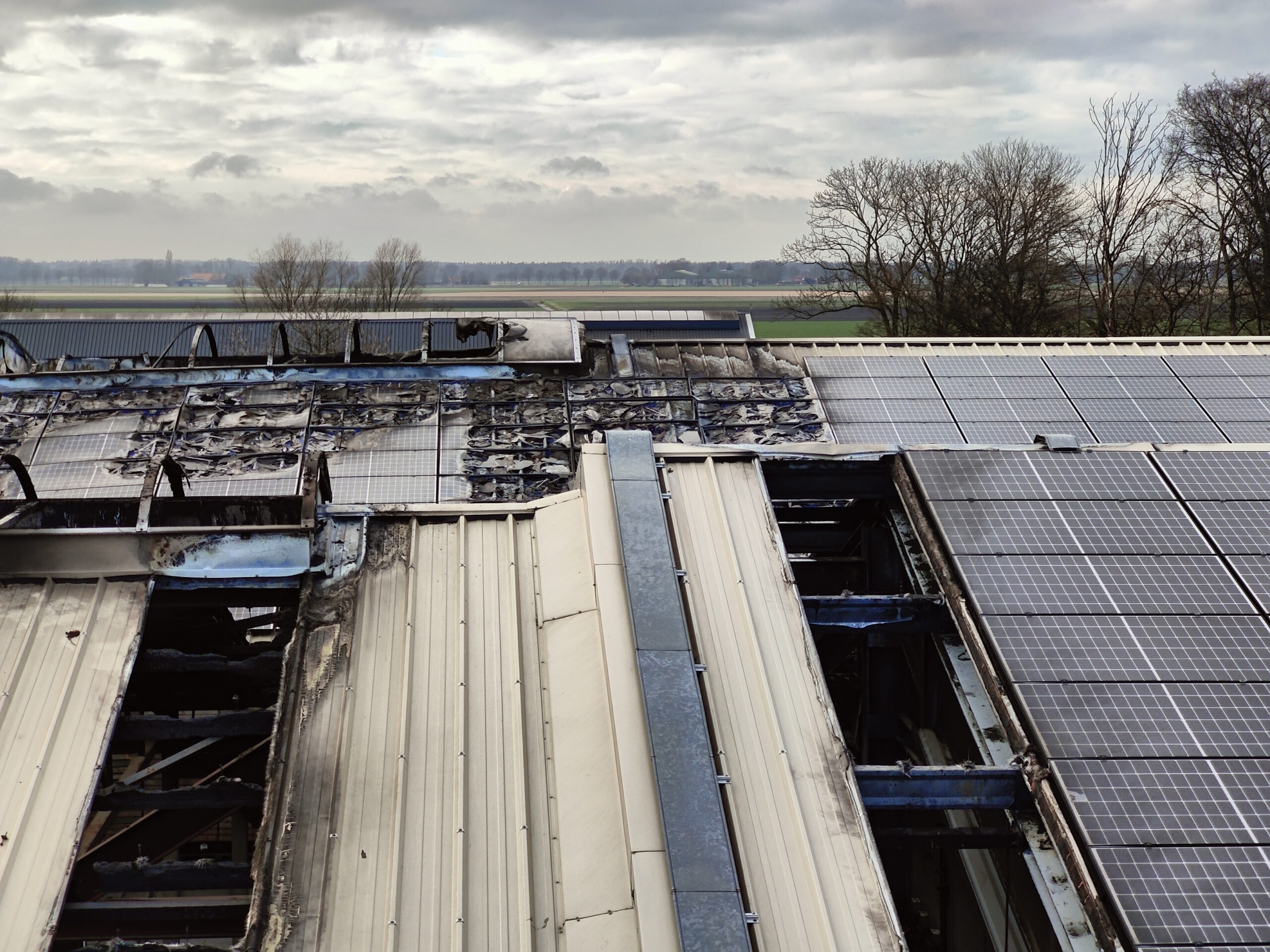
What is Solar Panel All Risks Insurance?
Solar Panel All Risks Insurance, also known as Solar Panel Insurance, is a specialized insurance policy designed to protect your operational solar energy installation against unexpected damage, loss, and consequential losses – including production loss.
Whether you’re an investor, commercial property owner, or energy cooperative, this insurance ensures financially security for your PV installation by covering a wide range of risks.
Choose a tailor-made solution that safeguards your investment and maximizes your returns.
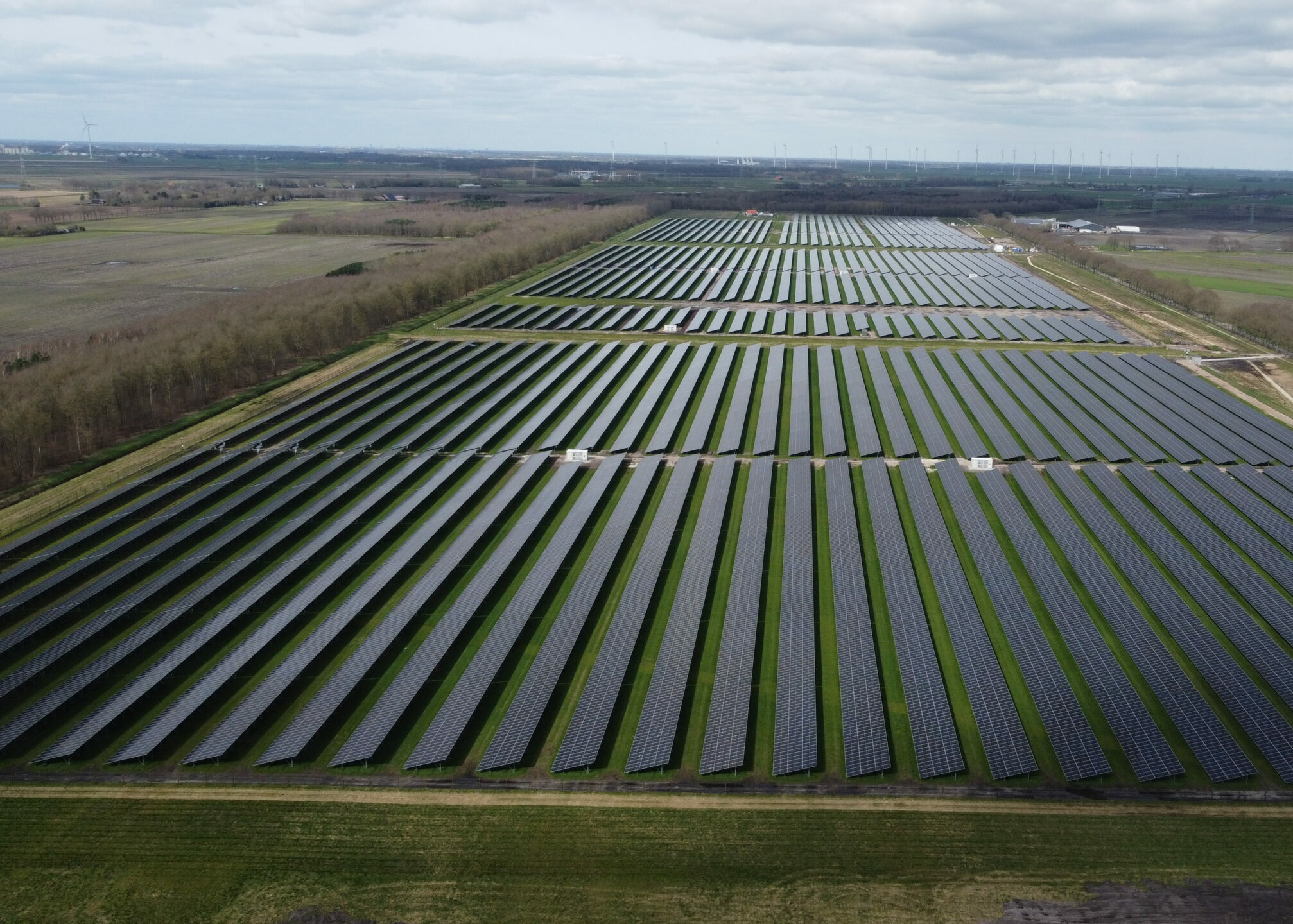
What is Covered by Solar Panel All Risks Insurance?
Our insurance provides comprehensive coverage for:
Material Damage
Protection against external damages such as natural disasters, fire, vandalism, and theft. This includes consequential costs like labour and transport expenses.
Production Loss
Loss of income due to operational downtime caused by covered damage for a period of 6 or 12 months.
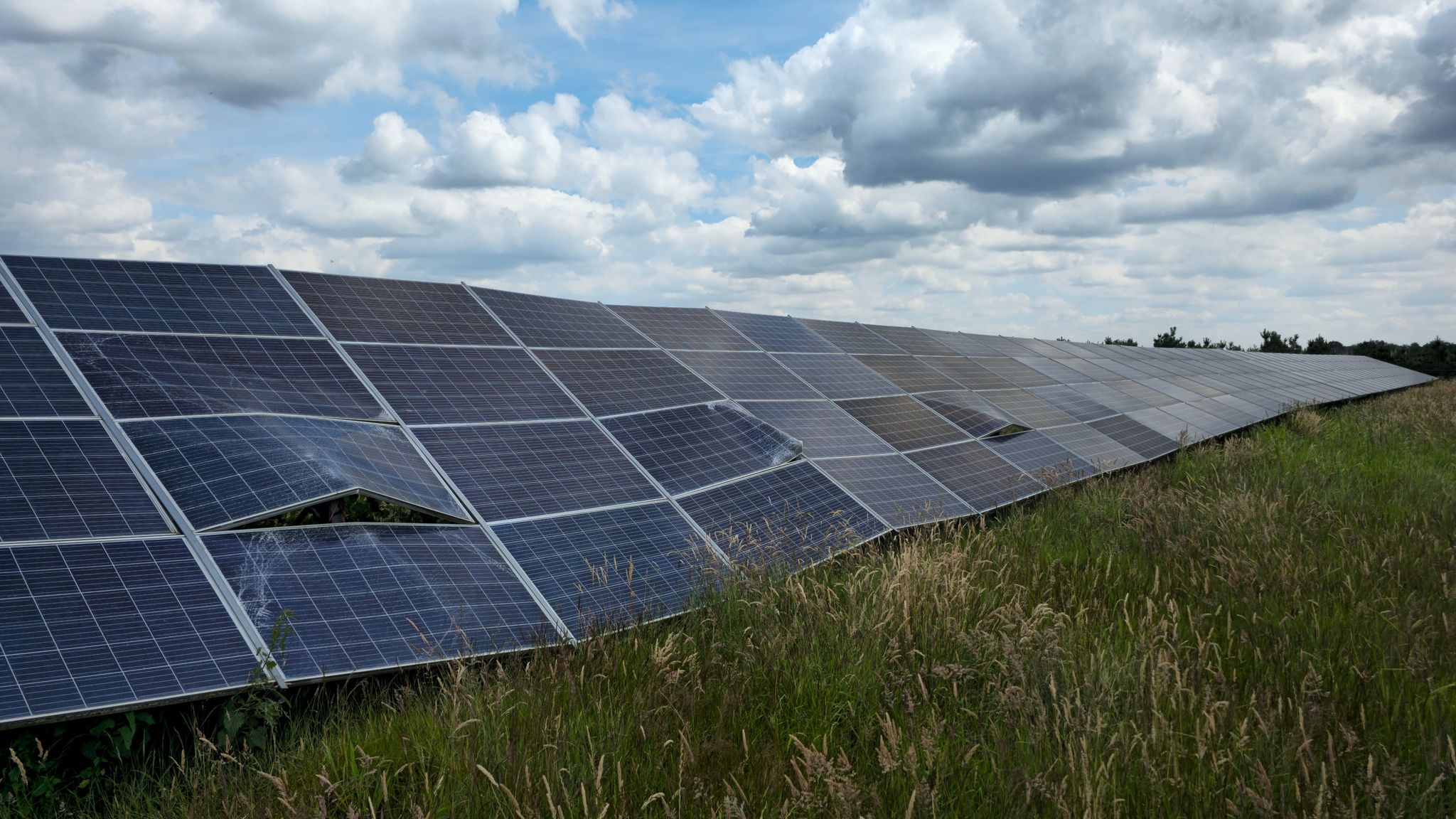
What is not covered by Solar Panel All Risks Insurance?
While a solar panel insurance offers extensive coverage, there are certain exclusions:
- Damage caused by intent or gross negligence
- Terrorism and malicious contamination
- War
- Cyber incidents
- Natural disasters
- Nuclear reactions
- Fines
- Wear and tear, corrosion, oxidation, and other gradual deterioration
It is important to carefully review the policy terms to know exactly what is and isn’t covered.
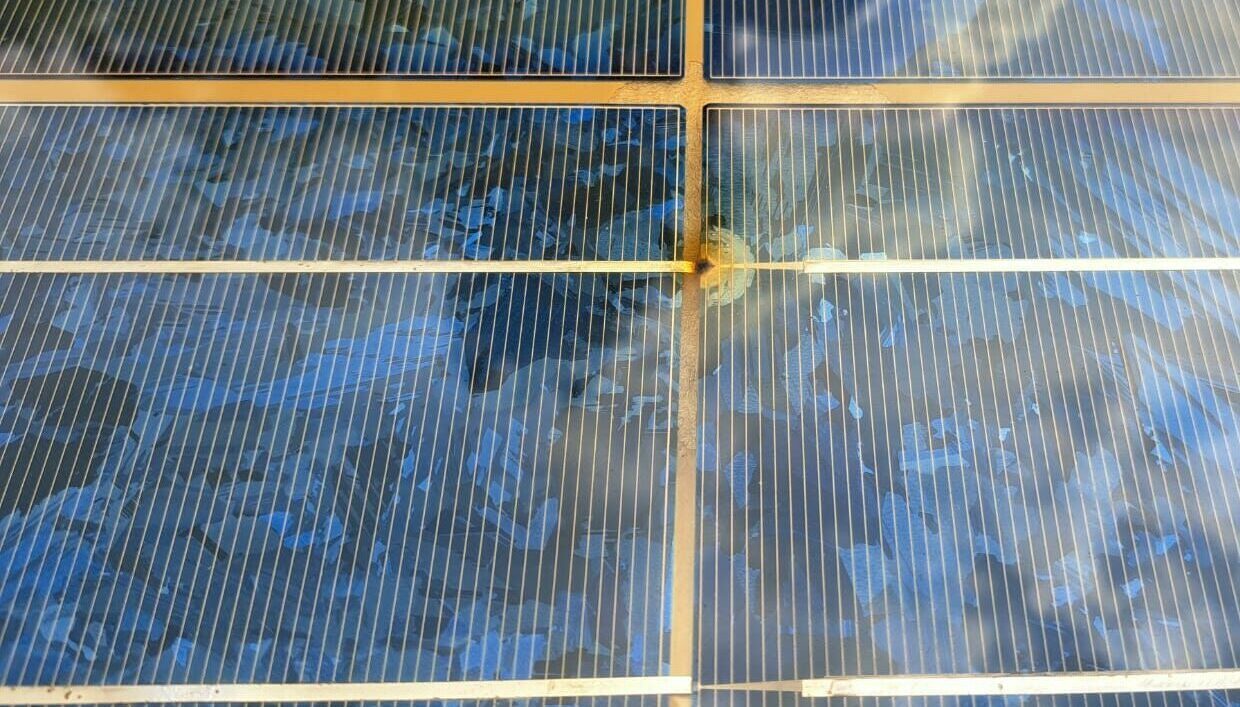
Unique Inherent Defect Coverage
Extend and Back Up Your Solar Panel Warranty at Project Level
Protect your investment in solar panels against manufacturer’s defects such as short circuits in the junction box, delamination, and poor solder connections
Our inherent defect coverage covers the costs that the manufacturer does not reimburse, such as labour, transportation, and production loss. If the manufacturer goes bankrupt, the insurance will also cover the replacement of the affected panels.
This optional coverage can be seamlessly added to our Solar Panel All Risks Insurance, providing you with comprehensive financial protection and long-term peace of mind.
Examples of damage covered:
Example 1: Storm Damage
A heavy storm damages your solar panel installation. Your installer repairs the damage quickly. Your insurance covers both the damage to the installation and the loss of income.
Example 2: Fire Damage
A fire in your building severely damages the solar panels on the roof. The insurance fully covers the costs of replacement, repair and the loss of income during the repair period.
Example 3: Theft
During the weekend, DC cables are stolen from your solar park. The insurance covers not only the cost of replacing the cables but also the consequential costs, and your loss of income.
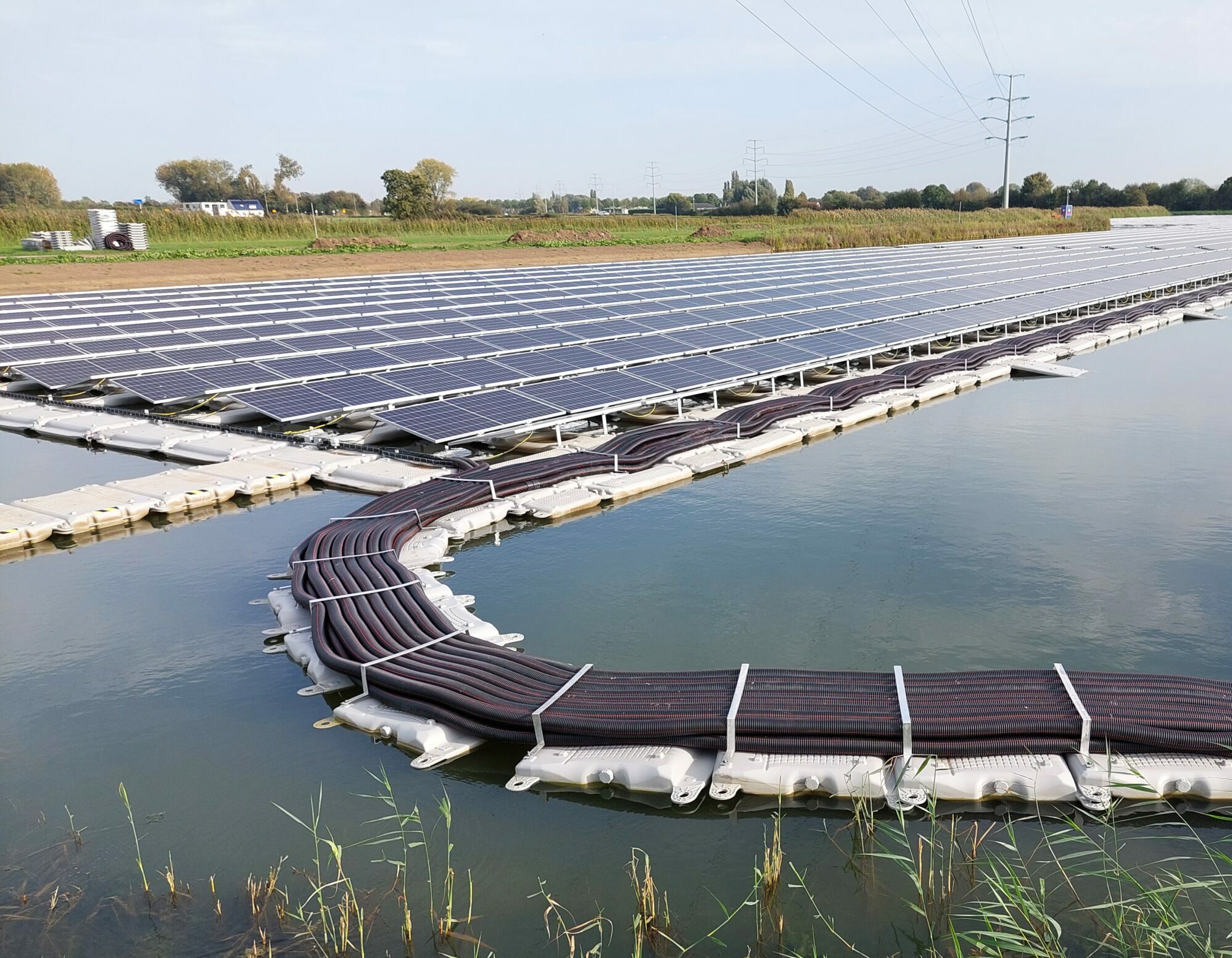
Why Choose Solar Panel All Risks Insurance?
A single storm, fire, theft, or technical failure can lead to significant financial losses, from costly repairs to extended downtime. Without insurance, these unforeseen events can jeopardize your investment, disrupt operations, and reduce profitability.
With our tailor-made Solar Panel All Risks Insurance, you gain comprehensive protection against material damage, theft, and production loss – ensuring your solar project remains financially secure, maximizes uptime, and delivers long-term, reliable returns.
Protect your investment today and invest with confidence.
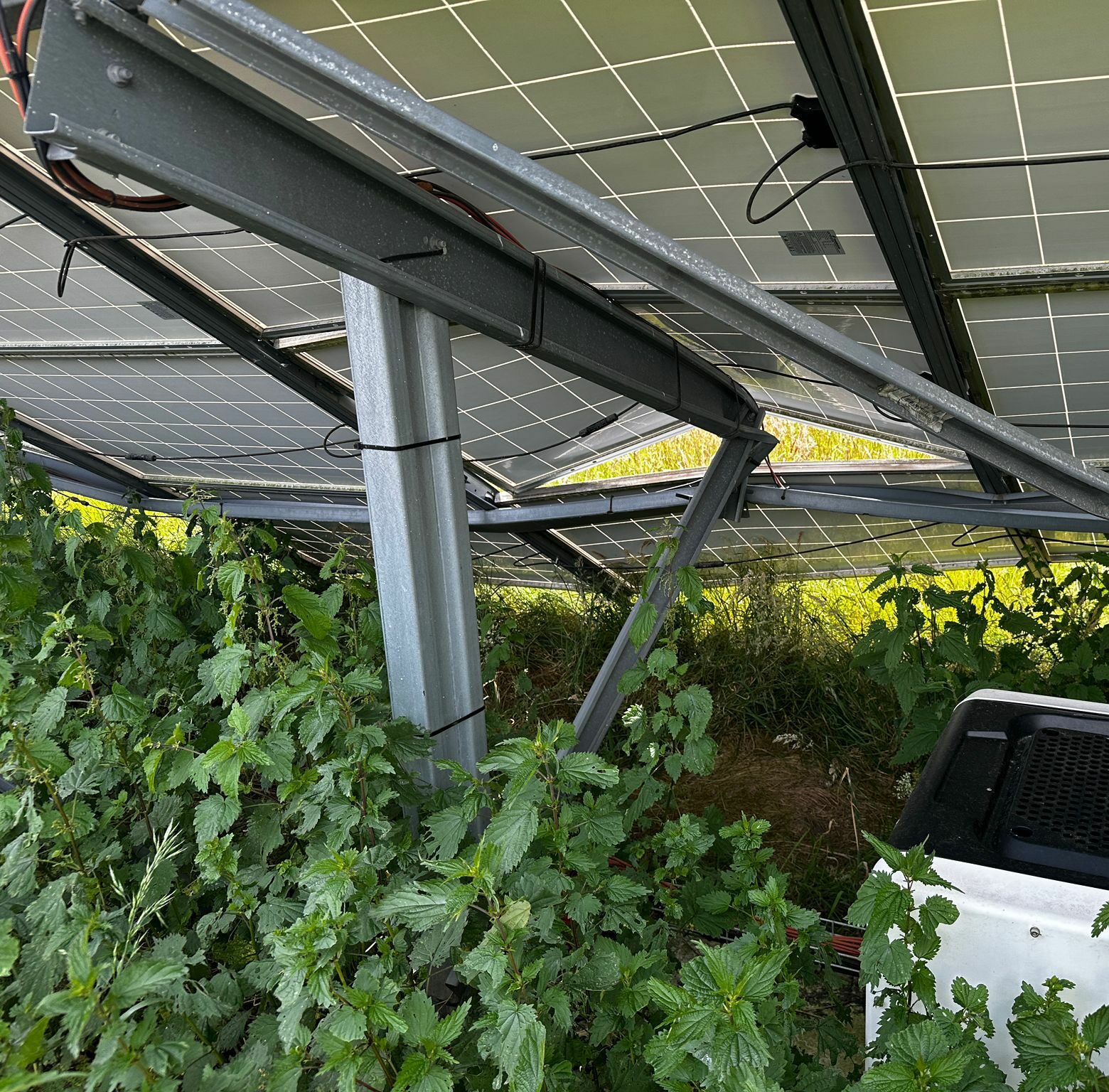
How is the Premium Calculated?
The premium for a solar panel insurance is calculated by adding together the following two components:
- Premium for material damage
This is calculated by multiplying the premium rate by the insured value of the solar park.
- Premium for production loss
This is calculated by multiplying the premium rate by the insured value of the production loss.
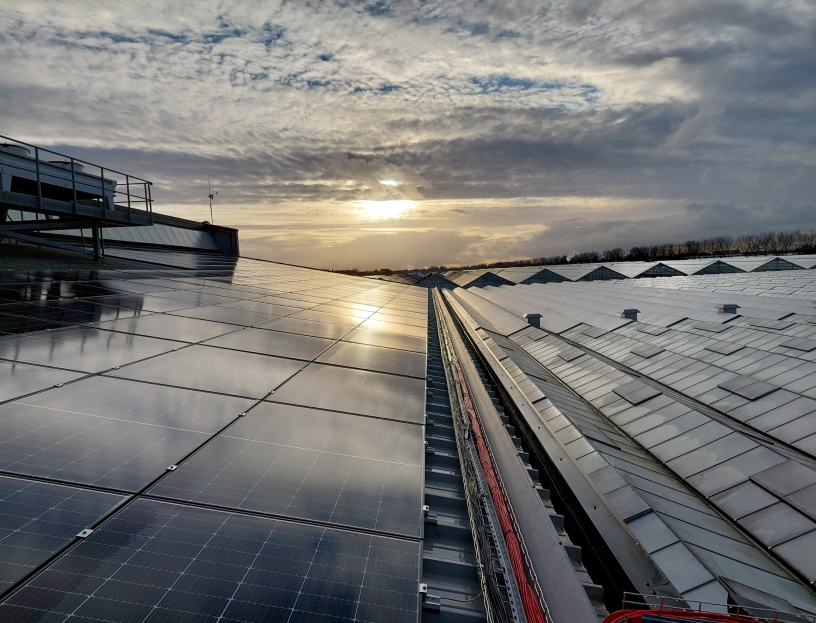
Example of Premium Calculation:
Insured Values:
Investment in solar park (CAPEX): € 1,345,500.00
Annual production revenue: € 15,830.00
Premium Rates:
Material damage: 2.15‰ per year
Production loss: 2.45‰ per year
Calculation:
Premium for material damage: € 1,345,500.00 x 2.15‰ = € 2,892.83
Premium for production loss: € 15,830.00 x 2.45‰ = € 38.78
Total annual premium: € 2,931.61
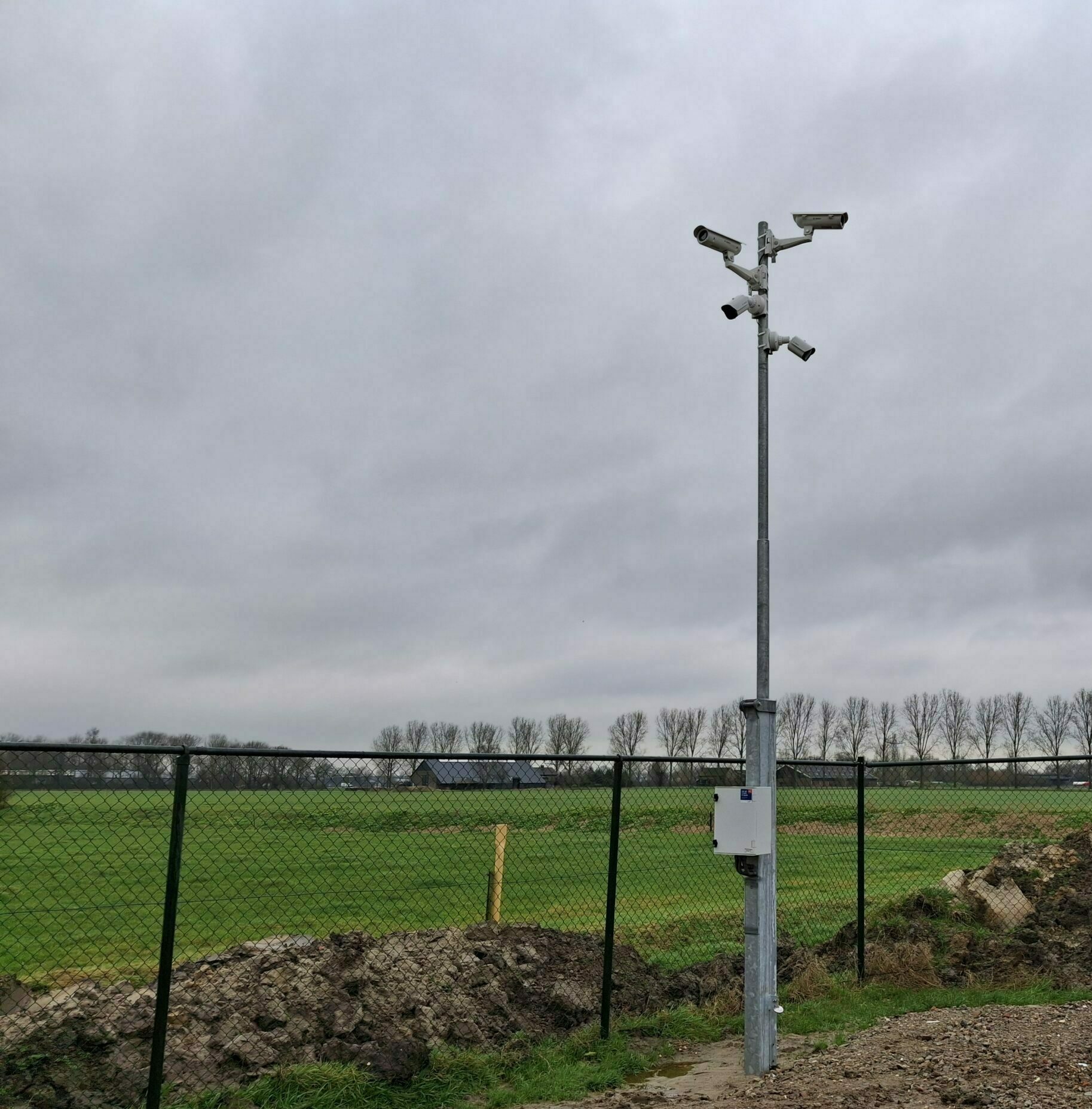
Security Requirements for Commercial and Utility Scale Solar!
Do you want to optimally secure your solar power installation?
Download our comprehensive whitepaper to meet the strict security requirements for solar power installations set by insurers.
Together, we are building a safe and sustainable energy future!
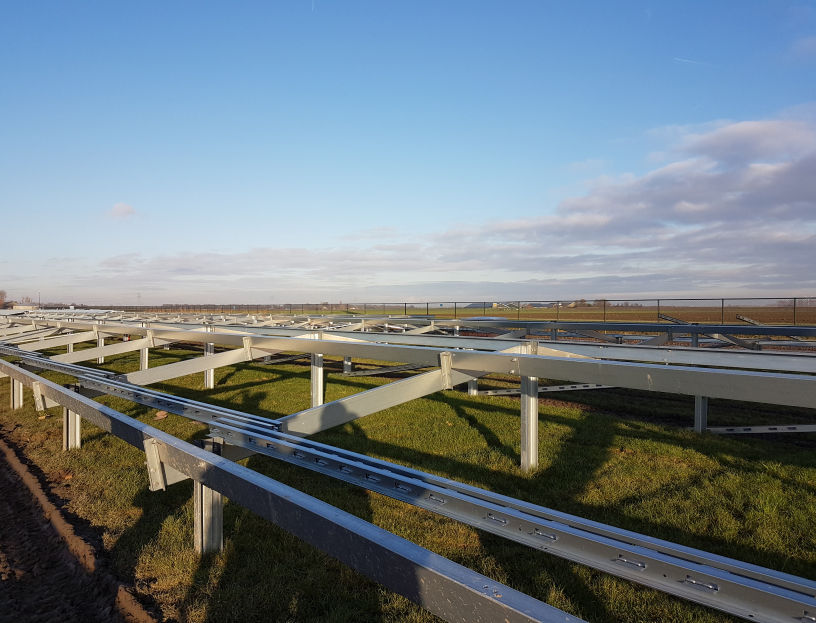
Secure Your Installation During Construction with a Construction All Risks Insurance!
It’s crucial to properly insure your solar panel installation, not just during operation, but also during the construction phase.
With our Construction All Risks Insurance (CAR), you’re protected against unexpected risks such as damage from accidents, theft of materials, and natural disasters during construction.
This helps you avoid additional costs and ensures your project progresses as planned.
Customer Experiences
“Solarif not only supports our solar projects with the desired insurance coverages but also with a package of risk-reducing measures. They organize quality checks with our selected producers in advance, offer extensive insurance options and conditions, and conduct on-site drone inspections afterward. It’s pleasant for us to have this all handled by one party that we also experience as professional, knowledgeable, and service-oriented.”
“The specialist insurances from Solarif cover all the desired risks in our business models, allowing us to offer a (bankable) total solution to our relations. We have come to know the people behind Solarif as thoughtful, knowledgeable, and familiar with the solar market. It feels good to always get direct answers to specialist insurance questions.”
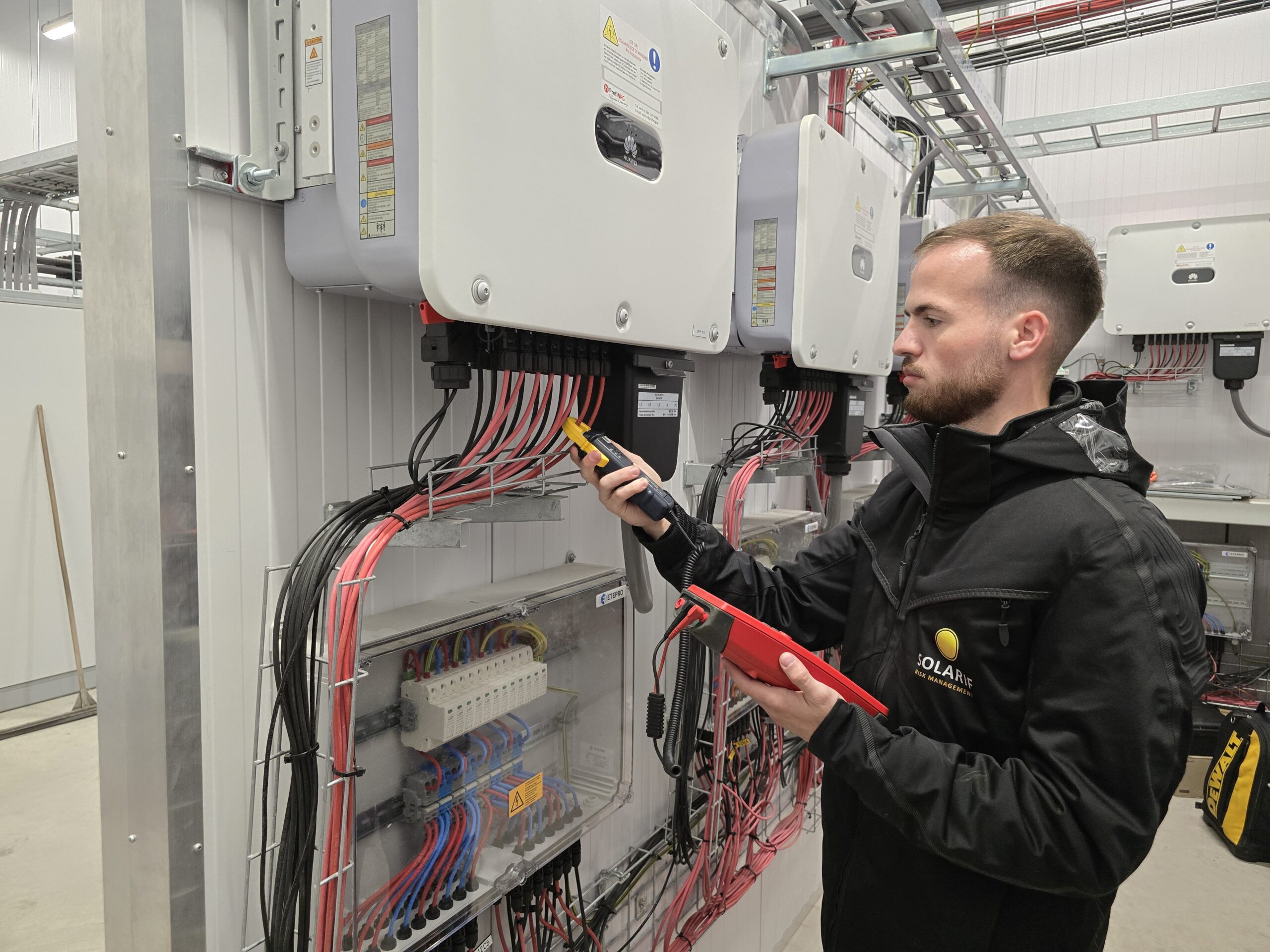
Scope 12 Inspection
Ensure the safety, quality, and insurability of your solar energy installation with a Scope 12 inspection by Solarif Risk Management.
In the Netherlands, a SCIOS Scope 12 inspection is not legally required but most insurers do demand it before providing coverage for commercial PV-installations.
Our SCIOS-certified inspectors thoroughly inspect your PV-installation and provide a clear report that demonstrates your installation is safe and well-functioning.
Choose certainty and expertise with a Scope 12 inspection from Solarif.
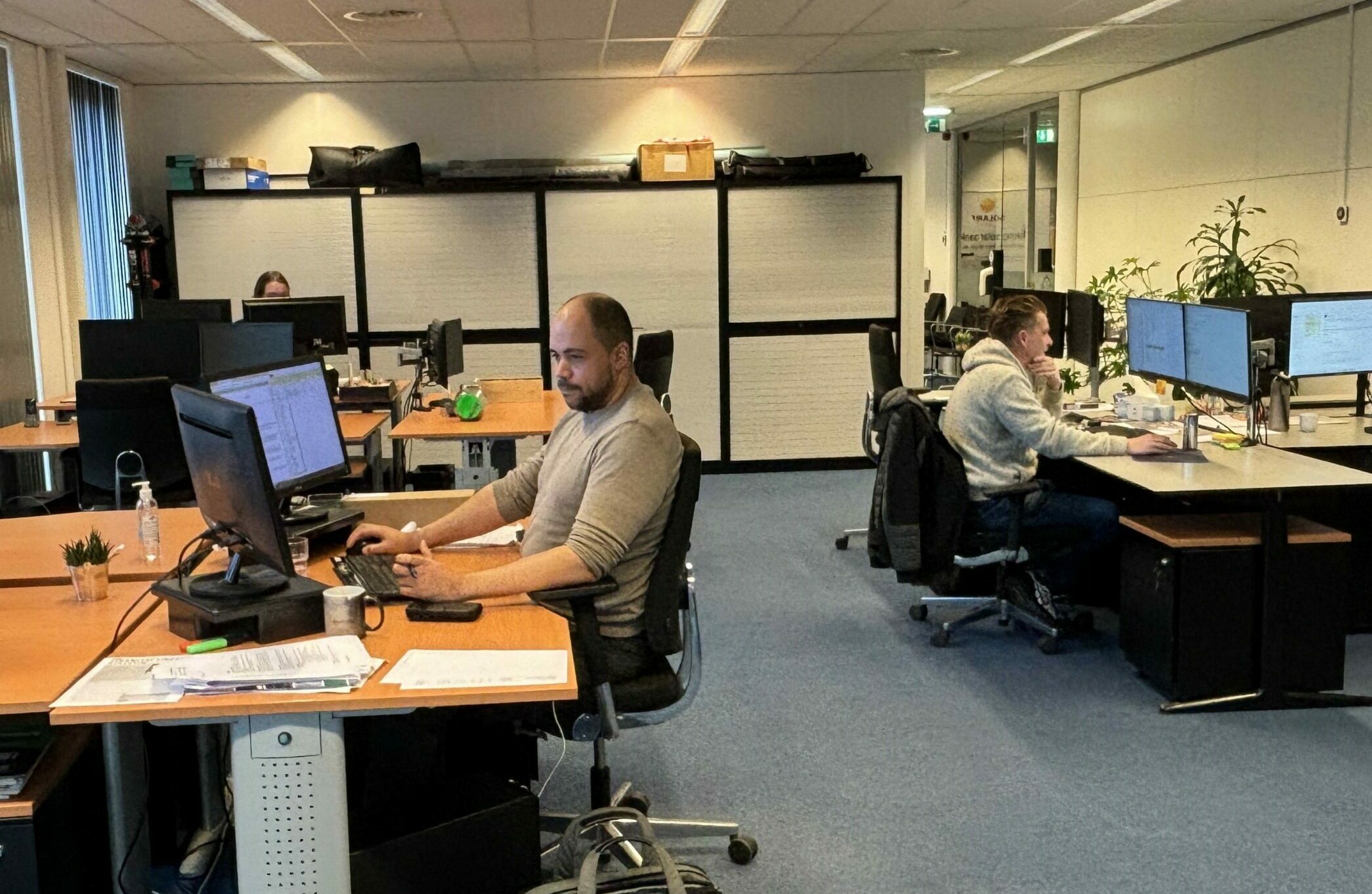
Our specialists are ready to assist you!
Do you want to protect your solar park against the risks of damage and loss of production? Request a free consultation today and discover how a solar panel insurance can support your investment.
Our specialists are available to assist you!
Email: insurance@solarif.com
Phone: +31 (0)26 711 5050
Stay Updated with Solarif!
Would you like to stay informed about the latest developments in solar, inspections, and renewable energy insurance?
Receive updates, the latest news, and tips!
Frequently Asked Questions
The cost of Solar Panel Insurance depends on several factors, including:
- Insured value of your installation
- Materials / components used
- Location-specific risks
- Damage history
- Desired coverage options and policy limits
- (Fire) safety measures
- Use and maintenance
- Manufacturer’s warranties
The premium is paid annually and does not include policy fees and insurance tax.
In addition to a Solar Panel All Risks Insurance, it is wise to take out the following insurances for optimal coverage:
Business Liability Insurance
Protects against third-party damage claims resulting from incidents with your Energy Storage System.
Environmental Damage Insurance
Reimburses costs for environmental damage caused by your energy storage system.
Consult our insurance advisors for tailored advice and the right coverage for your specific situation.
Our information request form makes it easy. By completing the form you provide us with all the essential information about your PV installation such as:
- The number, brand, and type of your solar panels and inverters.
- The installation date of your solar system.
- The total value of your solar PV-installation.
- The location of your solar energy system.
- Your personal information for a customized policy.
- All relevant documentation of your solar installation.
- Consult with Your Insurer
Before installing solar panels on a bitumen roof with flammable insulation materials, it is crucial to contact your insurer. Inform them about the specific composition of your roof, the planned installation work, and the measures you’re taking to reduce the risks. This helps prevent problems with your insurance and possible exclusions.
- Roof Inspection
Have a professional roof inspection carried out to assess whether your roof is suitable for solar panels. The expert will check if the roof has sufficient load-bearing capacity and whether structural reinforcements are necessary. If required, the inspection can indicate whether a roof replacement or renovation is needed.
- Roof Renovation
For older roofs or roofs with flammable insulation materials such as EPS, PUR, or PIR, it is advisable to consider a roof renovation. Replace flammable insulation materials with non-flammable alternatives, such as mineral wool, to significantly reduce the fire risk and increase the safety of your property.
- Professional Installation
Ensure that solar panels are installed only by a certified and experienced installer. Make sure the installer complies with your insurer’s conditions and has demonstrable experience with installing solar panels on roofs with flammable insulation materials. A professional installation minimizes risks such as fire and leaks.
- Risk-Reducing Measures
To increase the fire safety of your installation, consider using the following risk-reducing measures:
-
- AllShield Roof Coating
This non-combustible coating limits the spread of fire by preventing ignition of the roofing material and insulation. It reduces the amount of fuel available for the fire, causing it to extinguish itself before becoming uncontrollable. With the AllShield roof coating, the flammable roofing under the solar panels is effectively protected from fire.
- AllShield Roof Coating
-
- ArcBox
This is a protective housing for DC connectors, specially designed to minimize the risk of fire caused by electrical arcing. When a DC connector is placed inside the housing, it ensures that, in the event of an arc, the arc is safely contained. This keeps any potential fire limited to the housing, preventing it from spreading to nearby flammable materials. This significantly reduces risks, especially for installations on flammable roofs and critical locations such as hospitals, schools, and factories, where the consequences of fire can be severe.
- ArcBox
- Scope 12 Inspection
Have a Scope 12 inspection carried out by a certified inspector. This inspection checks the correct installation of your solar panels and connectors. By complying with this inspection, you meet the requirements of your insurer and ensure a safe installation. - Maintenance
After installation, it is important to have regular maintenance performed. This ensures that the installation remains in optimal condition and potential risks, such as faulty components or wear and tear, are detected in time.
Are you considering installing solar panels on the roof of your commercial property? We offer an essential whitepaper designed for property owners considering solar panel installations.
Discover how to ensure the fire safety of your installation, which materials and installation techniques help reduce fire risks, and which preventive measures you can take to minimize the chances of damage.
Download our free whitepaper now and gain instant access to valuable tips and advice. Click on the name of the whitepaper, fill in your email address, and receive the whitepaper directly in your inbox.
Whitepaper: A Fire-Safe Business – Ensuring Fire-Safe PV Installations on Roofs
Some insurers impose stricter requirements for installing solar panels on certain types of roofs or refuse to cover them altogether. This is often due to the increased risk of fire, collapse, and other structural damage associated with solar panel installations.
Here are some key considerations:
- Fire Safety
Roofs with flammable insulation materials, such as EPS (expanded polystyrene), PUR (polyurethane), and PIR (polyisocyanurate), pose a higher fire risk. Additionally, improperly installed solar panels or connectors can cause short circuits, increasing the risk of fire or electrical arcing. When flammable insulation catches fire, the chance of rapid fire spread is significantly higher, often leading to a total loss of the building. This increased risk makes insurers cautious when providing coverage for buildings with such roof constructions.
- Roof Structure
The strength of the roof structure is a crucial factor in installing solar panels. Not all roofs are designed to bear the additional weight of both the solar panels and their mounting systems. For older or less sturdy roofs, this can lead to sagging or even collapse. Beyond the weight of the installation itself, extra loads from heavy rainfall or snow can further increase pressure on the roof. Due to this increased risk, insurers often require a load-bearing capacity calculation before approving coverage for a building with a solar panel installation. They want to ensure that the roof structure can safely carry the total weight.
- Asbestos-Containing Roofs
Installing solar panels on a roof containing asbestos is not permitted. Installing solar panels requires drilling into the roof to securely attach them, ensuring they withstand wind and storms. Drilling into an asbestos-containing roof can release asbestos dust, which is harmful to health. Therefore, solar panel installation on an asbestos roof is not allowed. It’s important to have the asbestos removed by a specialist before installing solar panels.
- Thatched Roofs
Solar panels on thatched roofs present a significant fire hazard because thatch is highly flammable. Moreover, the placement of solar panels can disrupt roof ventilation, increasing the risk of heat buildup or spontaneous combustion. As a result, insurers are often reluctant to approve solar panels on this type of roof.
Conclusion
Insurers’ concerns about solar panels on certain roofs mainly stem from increased fire and safety risks. Ensure you’re always aware of your insurer’s conditions and take appropriate fire and safety precautions to prevent problems.
Want to have a conversation about the risks of your building? Get in touch with us!
A solar panel all risks insurance policy is often categorized under Operational All Risk (OAR) insurance by many insurers. An OAR insurance covers both material damage to the solar panel installation and the potential loss of production that may occur as a result of such damage.
Additionally, some insurers include a solar power installation under a Machinery Breakdown Insurance, often supplemented with a Machinery Breakdown Business Interruption Insurance. This combination also provides coverage for both material damage and production loss.
In all cases, it is advisable to carefully review the policy terms to fully understand the coverage and to ensure that the insurance best suits your specific situation.
Not by law, but required by most insurers for commercial solar panel installations.
Inherent Defect Coverage offers is an extension of the warranty of your solar panels and/or inverters by compensating consequential damage not covered by the manufacturer in the event of a valid warranty claim.
Additionally, this coverage serves as a safety net in the event of manufacturer bankruptcy. If an inherent defect occurs and the manufacturer is no longer able to honor the warranty, both the defective product and any resulting damage will be covered.
Read more about Inherent Defect Coverage.
- Note the date and time of the damage.
- Report the damage as soon as possible.
- Take measures to limit further damage.
- Keep receipts of the costs for any measures taken.
- Do not discard damaged parts until they have been released by the insurer.
- Take clear photos of the damage.
- Gather information: Ensure you have all the necessary information about your installation.
- Contact us: Call us or use our contact form.
- Risk Assessment: Schedule an intake conversation to map out your risks and needs.
- Arrange a quote: We compare quotes from different insurers.
- Make a choice: Choose the best quote and take out your policy.
- Policy: Receive your policy.
The insurance is determined by:
- Type and value of the installation
- Location and associated geographical risks
- Claim history
- Desired coverage options and policy limits
- Security measures




